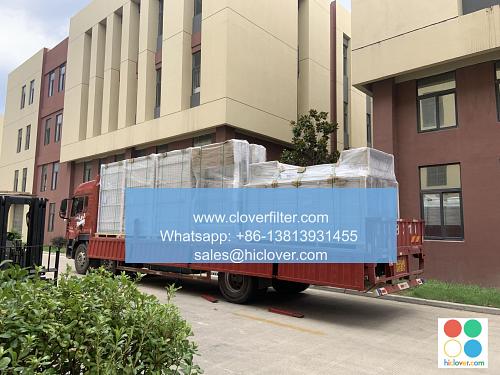The Role of Technology in Air Filter Development

Air filter development has undergone significant transformations in recent years, driven by advancements in technology. The integration of cutting-edge technologies such as nano-filtration, artificial intelligence (AI), and Internet of Things (IoT) has enabled the creation of more efficient, effective, and sustainable air filtration systems. In this article, we will delve into the role of technology in air filter development, highlighting various application areas and the benefits of these advancements.
Advancements in Filtration Technologies
The development of air filters has traditionally focused on mechanical filtration methods, which rely on physical barriers to capture particles. However, with the advent of nano-technology and membrane filtration, air filters can now capture particles at the nano-scale, significantly improving their efficiency. Furthermore, the use of electrostatic precipitation and ultraviolet (UV) light has enabled the creation of air filters that can capture and neutralize microorganisms and volatile organic compounds (VOCs).
Smart Air Filtration Systems
The integration of AI and IoT technologies has enabled the development of smart air filtration systems that can monitor and adjust to changing environmental conditions. These systems can detect particulate matter (PM), carbon dioxide (CO2), and humidity levels, adjusting the filtration rate and type to optimize indoor air quality. Additionally, machine learning algorithms can be used to predict and prevent air quality issues, ensuring a healthier and more comfortable indoor environment. The applications of advanced air filtration technologies are diverse and widespread, including: The benefits of advanced air filtration technologies are numerous, including improved indoor air quality, reduced energy consumption, and increased productivity. As technology continues to evolve, we can expect to see further advancements in air filter development, including the use of sustainable materials, 3D printing, and biotechnology. The future of air filtration is exciting and promising, with the potential to revolutionize the way we breathe and interact with our environment.
* Residential and commercial buildings: Improving indoor air quality and reducing the risk of respiratory diseases
* Industrial settings: Reducing air pollution and improving worker safety
* Transportation systems: Improving air quality in vehicles and public transportation
* Healthcare facilities: Reducing the risk of hospital-acquired infections and improving patient outcomesBenefits and Future Directions
In conclusion, the role of technology in air filter development has been transformative, enabling the creation of more efficient, effective, and sustainable air filtration systems. As we continue to push the boundaries of innovation, we can expect to see significant improvements in indoor air quality, public health, and environmental sustainability. It looks like you haven’t given me a prompt to work with. Could you please provide more context or specify what you would like me to help you with? I can assist with a wide range of topics, from answering questions to generating text or images. What’s on your mind?

